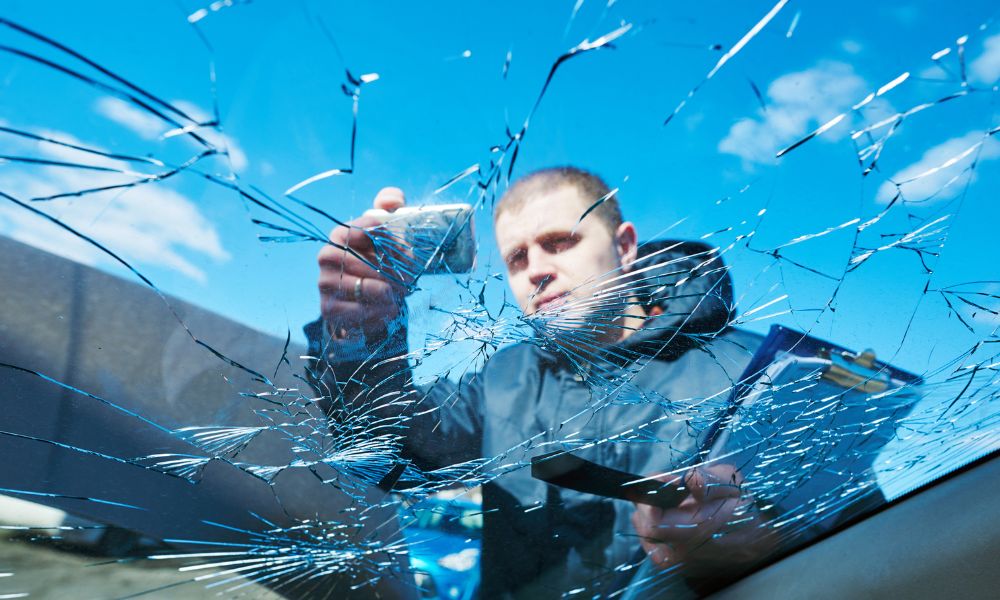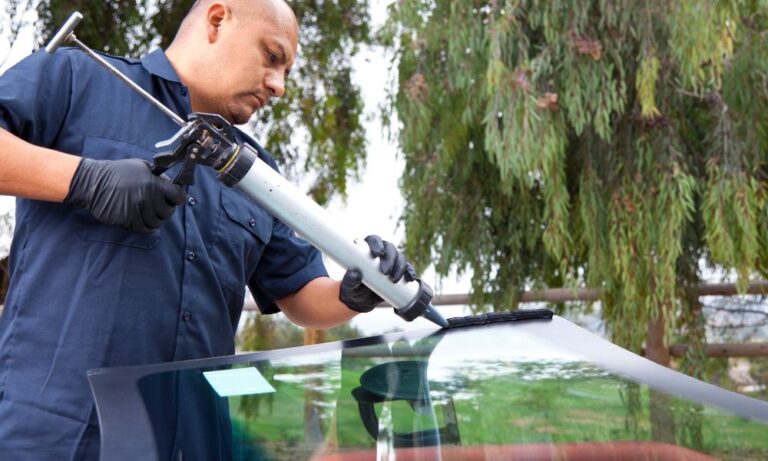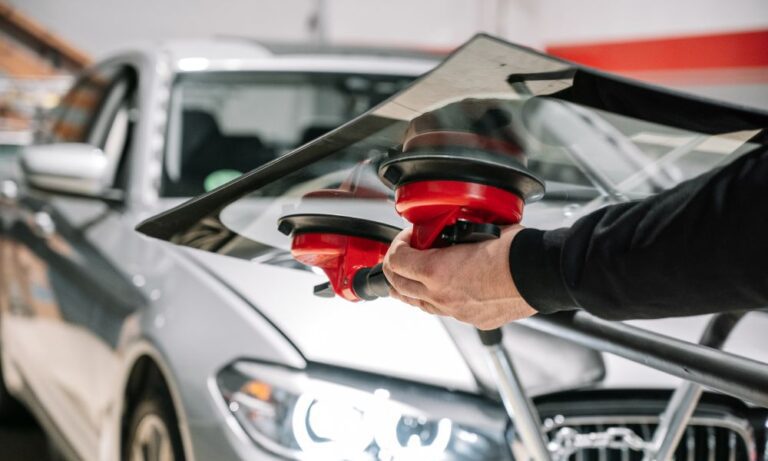In this blog post, we will delve deeper into the...
Auto Glass Insurance Claims: Understanding Coverage and the Claims Process

In the hustle and bustle of our daily lives, unexpected incidents such as a cracked or shattered windshield can disrupt our routines and pose safety risks. Fortunately, auto glass insurance coverage exists to help alleviate the financial burden and ensure our safety on the roads. In this comprehensive guide, we will delve into the intricacies of auto glass insurance claims, providing a clear understanding of coverage, the claims process, and important considerations for policyholders.
Auto Glass Insurance Coverage
Auto glass insurance coverage is a specialized aspect of auto insurance that deals specifically with windshield and other glass-related damages. While most standard auto insurance policies cover various types of damage, such as collisions and theft, auto glass coverage offers protection for glass-specific incidents, ensuring that repairs or replacements are affordable and convenient.
Types of Glass Coverage
1. Comprehensive Coverage:
Comprehensive insurance covers a wide range of damages, including those caused by events other than collisions, such as vandalism, falling objects, and even natural disasters. Auto glass coverage typically falls under comprehensive insurance.
2. Specific Glass Coverage:
Some policies offer specific glass coverage as an add-on or separate option. This type of coverage is exclusively for glass damages and may come with lower deductibles and easier claims processing.
Common Glass Damage
1. Windshield Cracks and Chips:
Cracks and chips can occur due to various reasons, from flying debris on the road to temperature changes. Immediate repair is crucial to prevent the damage from spreading.
2. Shattered Windows:
Break-ins, accidents, and acts of vandalism can lead to shattered windows, requiring complete replacement.
The Auto Glass Insurance Claims Process
Filing an auto glass insurance claim involves several steps, from assessing the damage to receiving the necessary repairs or replacements. Understanding this process can help streamline your experience and ensure a smooth claims journey.
Assessment of Damage
- Contact Your Insurance Provider: As a policyholder, you should reach out to your insurance provider as soon as the glass damage occurs. Provide them with details about the incident and the extent of the damage.
- Photo Documentation: Taking clear photographs of the damaged area can serve as visual evidence during the claims process.
Choosing a Repair Shop
- Preferred Providers: Some insurance companies have partnerships with specific auto glass repair shops. While you’re not obligated to use these shops, they often simplify the claims process and provide quality service.
- Shop Certification: Ensure that the repair shop you choose is certified and experienced in auto glass repairs or replacements.
Claim Filing and Approval
- Claim Form Submission: Your insurance provider will guide you through the claim filing process. This may involve submitting an online form, speaking with a representative, or using a dedicated mobile app.
- Claim Approval: Once your claim is submitted and reviewed, your insurance company will provide approval for the repairs or replacement. They will also inform you about any deductible that applies.
Repair or Replacement
- Repair Possibility: If the damage is a minor chip or crack, repair might be possible. Repairing the glass is often quicker and less expensive than a full replacement.
- Replacement: Shattered or extensively damaged glass typically requires a full replacement. The repair shop will remove the old glass and install a new one, ensuring proper seals and alignment.
Coverage and Payment
- Deductibles: Your insurance policy will specify the deductible amount, which is the portion of the repair or replacement cost you’re responsible for paying out of pocket.
- Coverage Limit: Be aware of any coverage limits in your policy. If the repair or replacement cost exceeds these limits, you might have to cover the additional expenses.
Considerations for Policyholders
Navigating the auto glass insurance claims process effectively involves understanding key considerations and making informed decisions.
Immediate Action
Prompt Reporting: Report glass damage to your insurance company as soon as possible. Delaying the reporting process might lead to complications during the claims process.
Choosing a Repair Shop
- Quality and Reputation: Opt for a repair shop with a solid reputation and positive customer reviews. Quality workmanship ensures the longevity of the repairs.
- OEM vs. Aftermarket Glass: Original Equipment Manufacturer (OEM) glass is sourced from the vehicle’s manufacturer, while aftermarket glass is made by third-party manufacturers. Consider your preferences and the availability of these options.
Understanding Deductibles and Coverage
- Deductible Payment: Understand how deductibles work and be prepared to cover this amount when filing a claim.
- Full Coverage Analysis: Review your insurance policy to ensure you have adequate coverage for glass-related damages. If not, consider upgrading your policy.
Claim Frequency
Impact on Premiums: Frequent claims, including auto glass claims, can impact your insurance premiums. Evaluate whether filing a claim is the best option based on your deductible and potential premium increases.
Conclusion
Auto glass insurance claims can be a source of relief in times of unexpected glass damages. Understanding the nuances of coverage, the claims process, and the considerations for policyholders empowers you to make informed decisions and navigate the process effectively. By promptly reporting damages, choosing reputable repair shops, and comprehending your policy’s terms, you can ensure that your auto glass claims experience is as seamless as possible. Remember that your safety on the road and the longevity of your repairs are paramount, making auto glass insurance a valuable aspect of your overall coverage.
Read more Articles
The Environmental Impact of Auto Glass: Recycling and Sustainability Efforts
In this blog post, we will delve deeper into the...
Auto Glass Safety Standards: What Every Vehicle Owner Should Know
In this blog post, we will delve deeper into the...



